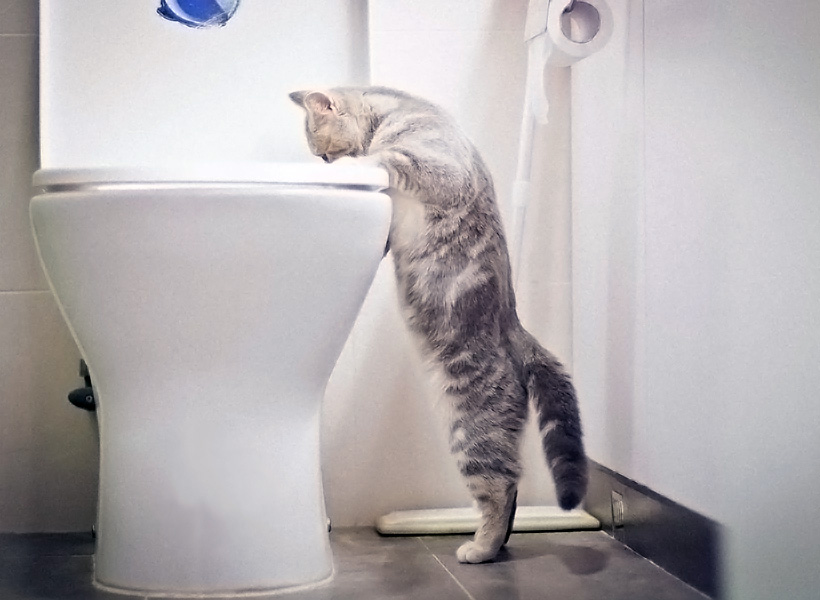Prevent Clogs and Damage: Never Flush Cat Poop Down Your Toilet - Professional Recommendations
Prevent Clogs and Damage: Never Flush Cat Poop Down Your Toilet - Professional Recommendations
Blog Article
This post following next on the subject of How to Dispose of Cat Poop and Litter Without Plastic Bags is relatively motivating. You should read it.

Intro
As feline proprietors, it's vital to bear in mind exactly how we throw away our feline close friends' waste. While it may seem hassle-free to flush feline poop down the bathroom, this technique can have detrimental effects for both the atmosphere and human wellness.
Ecological Impact
Purging feline poop presents damaging virus and bloodsuckers right into the water supply, positioning a considerable danger to water communities. These pollutants can negatively impact aquatic life and concession water top quality.
Wellness Risks
In addition to environmental issues, flushing cat waste can also posture wellness threats to human beings. Pet cat feces might consist of Toxoplasma gondii, a parasite that can cause toxoplasmosis-- a potentially severe ailment, specifically for expectant ladies and individuals with weakened immune systems.
Alternatives to Flushing
Luckily, there are more secure and much more responsible ways to take care of cat poop. Take into consideration the complying with options:
1. Scoop and Dispose in Trash
The most usual approach of disposing of pet cat poop is to scoop it into a biodegradable bag and toss it in the garbage. Make certain to make use of a devoted trash scoop and take care of the waste without delay.
2. Use Biodegradable Litter
Go with naturally degradable pet cat trash made from materials such as corn or wheat. These litters are environmentally friendly and can be safely dealt with in the garbage.
3. Bury in the Yard
If you have a backyard, consider hiding cat waste in an assigned location away from vegetable gardens and water resources. Be sure to dig deep adequate to prevent contamination of groundwater.
4. Install a Pet Waste Disposal System
Buy an animal garbage disposal system specifically developed for cat waste. These systems make use of enzymes to break down the waste, reducing odor and ecological impact.
Verdict
Responsible family pet possession extends past providing food and sanctuary-- it additionally involves appropriate waste management. By avoiding purging pet cat poop down the commode and opting for alternative disposal techniques, we can minimize our environmental impact and shield human health.
Why You Should Never Flush Cat Poop Down the Toilet
A rose by any other name might smell as sweet, but not all poop is created equal. Toilets, and our sewage systems, are designed for human excrement, not animal waste. It might seem like it couldn’t hurt to toss cat feces into the loo, but it’s not a good idea to flush cat poop in the toilet.
First and foremost, assuming your cat uses a litter box, any waste is going to have litter on it. And even the smallest amount of litter can wreak havoc on plumbing.
Over time, small amounts build up, filling up your septic system. Most litter sold today is clumping; it is made from a type of clay that hardens when it gets wet. Ever tried to scrape old clumps from the bottom of a litter box? You know just how cement-hard it can get!
Now imagine just a small clump of that stuck in your pipes. A simple de-clogger like Drano isn’t going to cut it. And that means it’s going to cost you big time to fix it.
Parasitic Contamination
Believe it or not, your healthy kitty may be harboring a nasty parasite. Only cats excrete Toxoplasma in their feces. Yet it rarely causes serious health issues in the cats that are infected. Most people will be fine too if infected. Only pregnant women and people with compromised immune systems are at risk. (If you’ve ever heard how women who are expecting are excused from litter cleaning duty, Toxoplasma is why.)
But other animals may have a problem if infected with the parasite. And human water treatment systems aren’t designed to handle it. As a result, the systems don’t remove the parasite before discharging wastewater into local waterways. Fish, shellfish, and other marine life — otters in particular — are susceptible to toxoplasma. If exposed, most will end up with brain damage and many will die.
Depending on the species of fish, they may end up on someone’s fish hook and, ultimately on someone’s dinner plate. If that someone has a chronic illness, they’re at risk.
Skip the Toilet Training
We know there are folks out there who like to toilet train their cats. And we give them props, it takes a lot of work. But thanks to the toxoplasma, it’s not a good idea.

Hopefully you enjoyed reading our post on How to Dispose of Cat Poop and Litter Without Plastic Bags. Thank you so much for finding the time to browse our piece of content. Do you know about somebody else who is truly interested in the subject? Do not hesitate to share it. Thanks so much for taking the time to read it.
Start Now Report this page